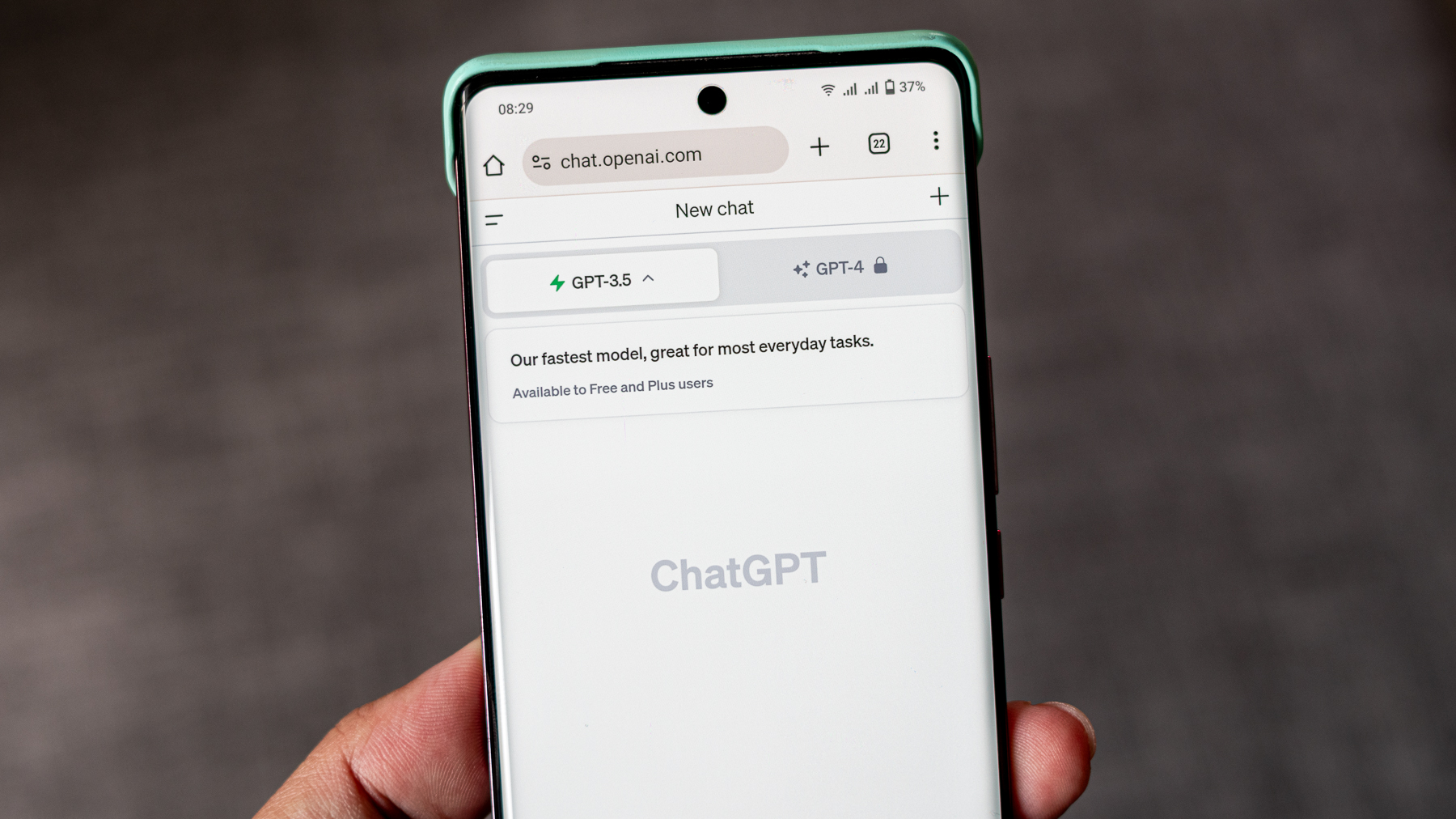How Noodlecake Studios came to rule Android gaming
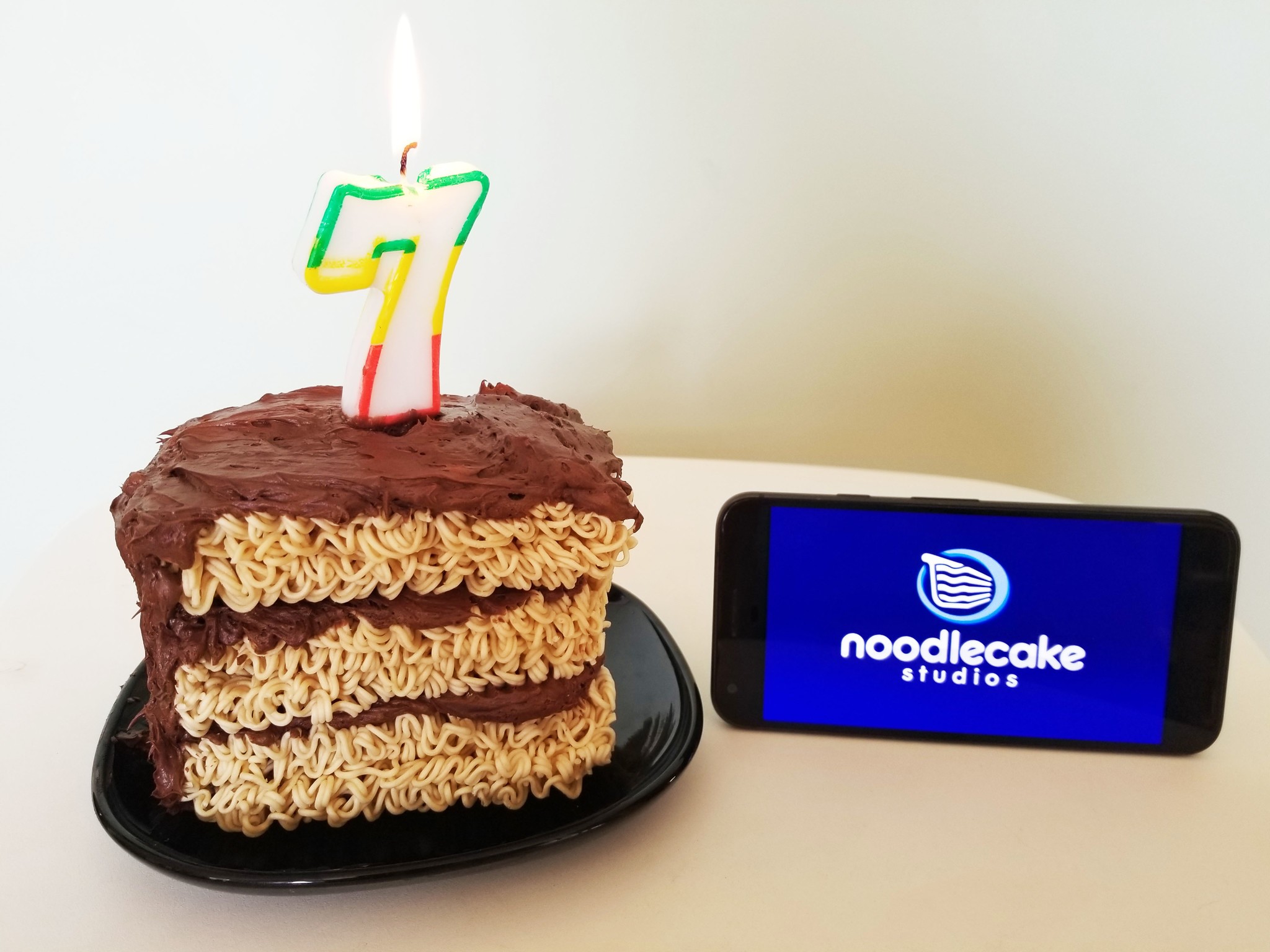
The folks at Noodlecake Studios have been busy as beavers lately, helping to polish and publish outstanding games such as Suzy Cube and Alto's Odyssey, amazing new titles for Android gamers to check out. All told, the team has helped publish well over 100 games to the Google Play Store.
Based out of Saskatoon, Saskatchewan, this plucky studio is far removed from Silicon Valley and Canadian tech hotspots in Montreal and Vancouver but has managed make a major impact on the Android gaming industry.
The following is a Q&A we had with Ryan Holowaty, one of the core members of the Noodlecake team who talked to us about porting games to Android, the latest trends in the gaming industry, and most importantly what's the story behind the name Noodlecake?
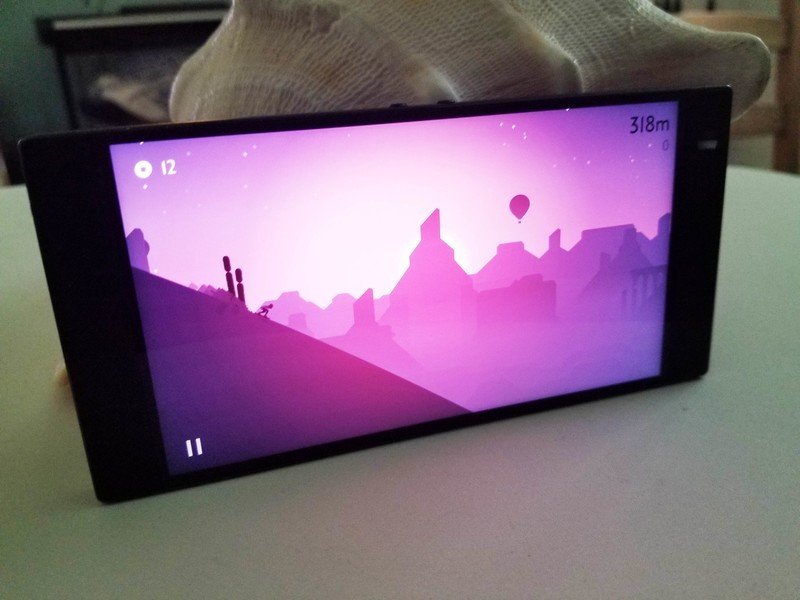
The history of Noodlecake Studios
Noodlecake Studios has been developing and publishing games to Android for seven years. What started as a group of friends wanting to try their hands at developing a game for Apple's new iPhone has evolved to become one of the premier mobile game publishers.
Android Central: How was Noodlecake first founded? Is there a story behind the studio name?
Ryan Holowaty: Noodlecake was founded way back when the iPhone was first being released in Canada. Jordan Schidlowsky and Ty Haugen, our two co-founders, created the first version of Super Stickman Golf, called Stick Golf back then, and released it to the App Store as a bit of an experiment. The game took off and warranted the creation of Super Stickman Golf and the formation of the studio. At the time I and many others including Jordan and Ty were all working at a local software firm. When the game became successful, they took the leap to form the company and brought me and other key members over to help run things.
The name came purely from dealing with the lack of domain names available. We knew that all one-word domains are gone unless you create some new fake buzzword so instead we wanted to take two easy to spell and fun sounding words and mash them together. After a few beers at the local pub, Noodle cake or Noodlecake was born.
Be an expert in 5 minutes
Get the latest news from Android Central, your trusted companion in the world of Android
AC: For a studio in a small market like Saskatoon, how important is it to find local talent from the University of Saskatchewan? How has the industry evolved in world-class Canada over the past seven years?
RH: It is very important. Almost our entire staff are U of S grads. The computers science program here is top notch and has been producing world-class talent for years now. The industry isn't huge yet here as many other provinces have grant systems in place for supporting game development, so it is a bit harder to get started without that help.
The University is teaching a game design course now, so that helps prepare students for the industry and small studios are starting to pop up all over the place. Most notably Studio MDHR, the creators of Cuphead, are partially based out of Regina. There was a time when it was only us and it is exciting to see that change.
AC: What were some of the challenges and/or advantages of starting a mobile game studio in the "middle of nowhere"?
RH: The lack of government support is definitely a roadblock for new studios. There are small-scale programs you can find but Saskatchewan is a resource-based province. So unless you are in agriculture, oil and gas or mining, the government really hasn't set much up for technology.
However, that has formed a bit of a "we are going to do it without you then" attitude and a lot of cool technology companies have been created here. It is also hard to bounce ideas off other studios or go visiting other developers unlike in big centers like Montreal or Vancouver where game dev meetups are happening all the time.
But on the flip side, the cost of living is so much more acceptable it is much easier to turn a profit. Unlike the obscene costs of living in the valley, you can retain so much more of your earnings on reasonable rent and other lower costs of living. And as long as we make trips to conferences like GDC, we are able to do the face to face meetings that are so important for growth, so it all balances out nicely.
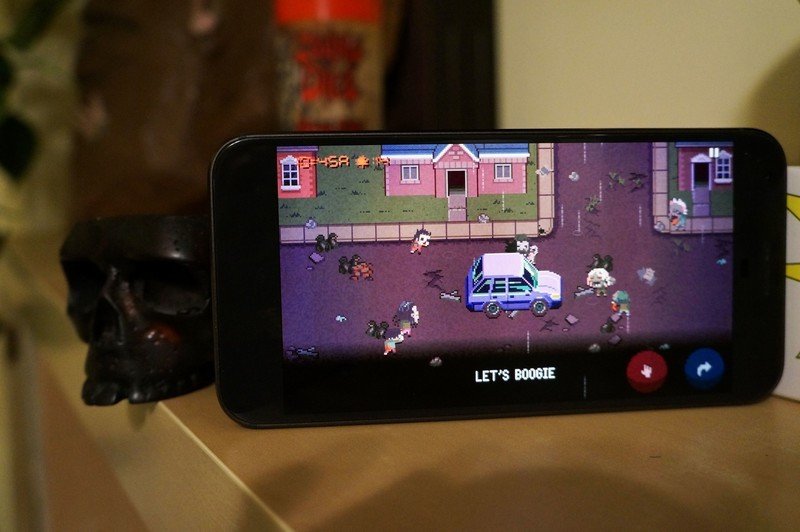
Porting to Android
Noodlecake has done a fantastic job porting games to Android, from quality ports of gaming classics (realMyst), outstanding indie game releases from Steam (Death Road to Canada, Getting Over It with Bennett Foddy, and helping iOS developers publish their games for Android audiences (Really Bad Chess, Random Heroes, Suzy Cube, Alto's Odyssey).
AC: How does the team decide which game studios to work with, and which titles are worthy of the time and effort required to port over to Android? Do you reach out to developers or are indie studios constantly knocking at your doors looking for help bringing their games to Android?
RH: The porting aspect of Noodlecake has shifted over the past few years. Initially, we offered to port games as a way to bootstrap our publishing division. Over time as our publishing network grew, porting became more of an add-on for some developers who need help, but not the main focus of the studio. So most times that we do ports only — for example, Death Road, Alto's Adventure and more — they are for more high-profile developers who focus on iOS only. So we have become a bit more selective in our porting process and lean to these types of established games if we are not doing a full publishing deal on iOS as well.
AC: What are the steps involved to port a game to Android? Are there some genres or Android devices that are especially tricky to work with?
RH: It really depends on how the game was developed. A few years back many developers were using Cocos2d which could not compile to Android. This is where our porting tech really came from. We were able to cross-compile their iOS code to an Android device. However, today most developers are using Unity which can already compile to Android. The catch here is optimization and support.
There are so many Android devices out there that they range wildly in their costs and hardware quality. The easiest rule of thumb is to develop for the lowest-end device. This can be either the oldest device you can get your hand on or the cheapest. Usually, cheaper hardware is cutting corners in places by using lower RAM or more basic touch controllers, which can cause serious issues on new games.
AC: What are the biggest hurdles developers face when porting their game from Steam to mobile, or from iOS to Android?
RH: Steam to mobile or mobile to Steam can be a big hurdle purely due to player expectations. Even though full console quality games are available on mobile first, there is a stigma that they are small baby games if they debut on mobile first. And in some instances this is true. If a game is designed to be more of a quick, one-touch arcade game, then it probably doesn't belong on desktop however the lines continue to blur in that respect these days.
From a technical standpoint, the big one is how you control the game. Touch screens games are designed differently than ones you have to use a keyboard and mouse or controller for. So adapting them can be both technically challenging and also time-consuming. For example on a mobile device, you select a button by pressing it with your finger. So in many cases, you don't need what is referred to as a selected state for the button.
However, using a controller you need to use the D-Pad to move to the button. So to show players what they have selected, you have to create a newly selected state of the button by either changing the color or adding some sort of marker to it. This extra level of development for all your UI can be very time consuming when going from mobile to PC.
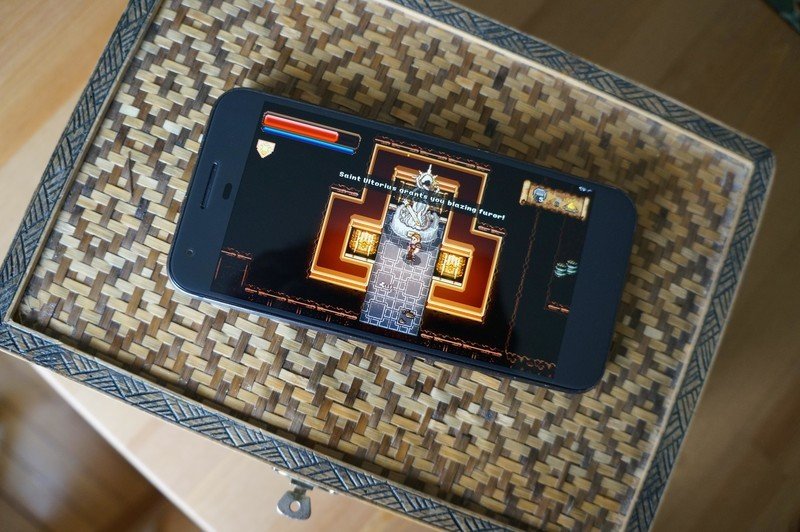
The mobile game industry
AC: What's the Noodlecake philosophy behind making the decision to make a game paid vs free-to-play with ads vs free-to-play with microtransactions? For example, Alto's Adventure and Alto's Odyssey were paid apps on iOS but was ported to Android as free-to-play games with in-app purchases.
RH: For us, it is a combination of what the developer wants to do and what we advise to do. In many cases, the developer wants to keep the game always premium or F2P on both and that is what we do. However, it is our job to educate the developer as to what we think would be the best model. It is our philosophy that in the end, the game is the developer's art and we are not here to mess with that. We just want to help them bring the best product they can.
In the case of Alto's Adventure, the Snowman team acknowledged that there is a big difference in player behavior on iOS and Android and that premium games have a much harder time on the Android platform. So it was actually their idea initially to do the conversion. We just helped them develop a free-to-play version we thought would ride the balance of still feeling like a premium experience but make F2P monetization choices.
AC: It's been almost a year since ZPlay, a Chinese tech firm, bought a 70-per-cent stake in Noodlecake. How has that partnership impacted your reach into the Chinese market? What are some of the biggest differences between Chinese and North American gamers?
RH: It has given us access to a new market that is really just starting to show its potential. Because of the recent crackdown by the Chinese government on piracy, all games now require a registration number that is given to games after they apply to the government. This process is slow and very hard to complete if you are not in China, so having a partner on the ground opens the doors to the market there.
As well platforms like WeChat are now integrating HTML 5 versions of games into their platforms and those are proving to be very lucrative if you have the right type of game. For example Leap On! has been converted for H5 and is being sold on WeChat and QQ as a free game with advertising support. The revenue numbers coming in from that are topping anything we did on iOS and Android.
AC: With more smartphone makers testing the waters of "gamer phones" and flagship specs allowing for nearly console-quality gaming experiences on your smartphone, where do you see the mobile gaming industry headed?
RH: I think the more interesting side of this is how Nintendo, one of the biggest names in video games, has bridged the gap in the other direction with the Switch. I think what we are going to see is more of a unification of consoles becoming more portable and phones becoming more console-like and meet somewhere in the middle.
What you'll see then is adapters and things that allow you to swap out large screen experiences with portable ones through docks and cables etc. Razor is working on a shell that you actually just drop the Razor phone into and it turns the phone into a full-fledged laptop.
AC: The app stores are often dominated by flash in the pan trends or imitators that try to copy successful formulas (see: match-3 games, Flappy bird, Pokemon Go AR-style games, Battle Royale games, etc.). Any predictions as to what the next trendy game style will be?
RH: There is definitely a shift towards multiplayer games using the "games as a service" type model and I do not think that is going away anytime soon.
We really have no time for imitators/clones of games and I think that is a whole can of worms that needs to be addressed by the platform holders like Apple and Google. But if I knew the answer to what the next big trend was going to be, I think I would be working on the game and probably wouldn't tell you until it was out 😉.
Marc Lagace was an Apps and Games Editor at Android Central between 2016 and 2020. You can reach out to him on Twitter [@spacelagace.

